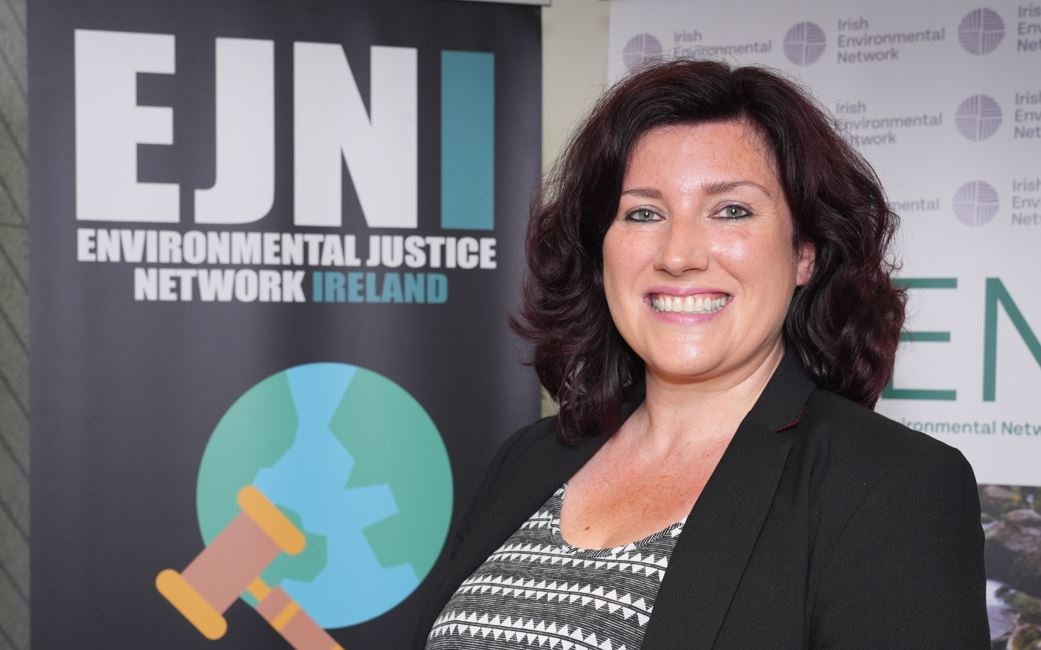THE British government should take emergency action to cut ammonia levels in Northern Ireland in the absence of a devolved government, a legal expert has said.
Although the north’s first climate legislation, which aims to cut carbon emissions to net zero by 2050, was passed in March last year, it cannot be enacted due to the 18-month hiatus at Stormont.
There are also no legally-binding targets in the north to reduce ammonia - a nitrogen compound, mainly from animal waste, which can damage the environment and human health.
Dr Ciara Brennan, director of the Environmental Justice Network Ireland, told The Detail that although an all-Ireland strategy is ultimately needed to tackle ammonia emissions and the wider climate crisis, Westminster must intervene now.
"In the short term, in the absence of devolved government at Stormont, Westminster in consultation with the Irish Government should step in to take action on ammonia and to consolidate and build on the legally-binding commitments enshrined in the north's first climate act, which became law last year,” she said.
“This is a climate emergency. It should be perceived as urgent enough for emergency legislation and emergency interventions from Westminster, if the Stormont shutdown goes on and progress continues to be held up on this."
Around 97% of Northern Ireland’s ammonia emissions come from agriculture - the north’s biggest business sector.
Figures show that Northern Ireland’s ammonia emissions are rising.
Between 2005 and 2020, emissions rose by 5%, compared to a 10% decrease in Scotland and England.
Earlier this year, the Northern Ireland Department of Agriculture, the Environment and Rural Affairs (Daera) released a strategy on how to tackle ammonia emissions.
But the strategy has been branded as toothless and insufficient by environmental and health campaigners.
This month, Daera also launched a consultation on setting carbon budgets - the volume of greenhouse gases the north should emit - between this year and 2037.
However, Dr Brennan said tougher measures are needed.
"There should be a moratorium on granting (planning permission to) new intensive farms or extensions to existing facilities which would result in an increase in ammonia pollution until such times as the ammonia crisis is under control,” she said.
Earlier this month, the Northern Ireland Environment Agency, an executive body within Daera, announced that some applications for livestock units had been “temporarily paused” while it consulted legal experts about its ammonia guidance to councils for use in making planning decisions.
Daera is being investigated by environmental watchdog, the Office for Environmental Protection (OEP), over the ammonia guidance.
However, a moratorium on all new livestock farm developments has not been issued.

Dr Ciara Brennan, director of the Environmental Justice Network Ireland. Photo by Brian Thompson Photography
All-Ireland collaboration
A new report by Environmental Justice Network Ireland has called for greater cross-border collaboration over the environment.
“Cross-border and all-island environmental cooperation and engagement by all environmental actors are essential to achieve much-needed positive environmental outcomes on the island of Ireland,” the report read.
The report found that differing regulations in the north and Republic have previously caused serious issues.
"An absence of regulatory alignment on either side of the border can create not just divergent standards but also the potential for pollution hotspots where gaps or disparities in regulation exist,” Dr Brennan said.
"We saw this in the early 2000s… where differing approaches to waste regulation on either side of the border allowed unscrupulous operators to take advantage of divergent approaches.
"Where transboundary regulation of pollutants that are airborne or waterborne - such as ammonia - are concerned, a joint strategy is required in order to be able to tackle them.”
Dr Brennan called for the establishment of an all-Ireland body to ensure the same environmental standards are applied across the island.
"There are some international legal commitments in place already," she said.
"But, in terms of domestic enforcement, there could be an all-island oversight body to make sure that the law is enforced on both sides of the border.
"As far back as 2007, it has been suggested there is a need for formal all-island cooperation on regulation and enforcement."
But a senior Daera official told The Detail that an all-island approach would not be necessary.
Dave Foster, Daera's head of national environmental policy, said: "No one has exclusivity on good policy ideas and we would be consulting with colleagues in the Republic of Ireland - mainly, with (advisory agrifood body) Teagasc - and making sure policy is as aligned and informed as possible, in this respect.
"Obviously, we have our own ammonia strategy and we don't necessarily see a reason for any additional or cross-island involvement than is already the case.
"The strategy and this wider work is continuing amid the current shutdown, as it was when ministers were in place.
"So I don't necessarily see the Stormont hiatus adding any weight to calls for an all-island approach on ammonia."
A spokesman for Daera said its staff already work with their counterparts in the Republic and Britain to share policy ideas.
"In developing updated policy advice for returning ministers on ammonia, officials will continue to work with colleagues across these islands to ensure that the best possible advice, informed by the latest scientific evidence, is provided,” he said.
He added: "Meeting the ambitious targets set in legislation will require transformative actions across public and private sectors and civil society and, in many cases, very different public policies, programmes and investment decisions and these are all properly matters that returning ministers and a new Executive will have to determine."
 By
By
